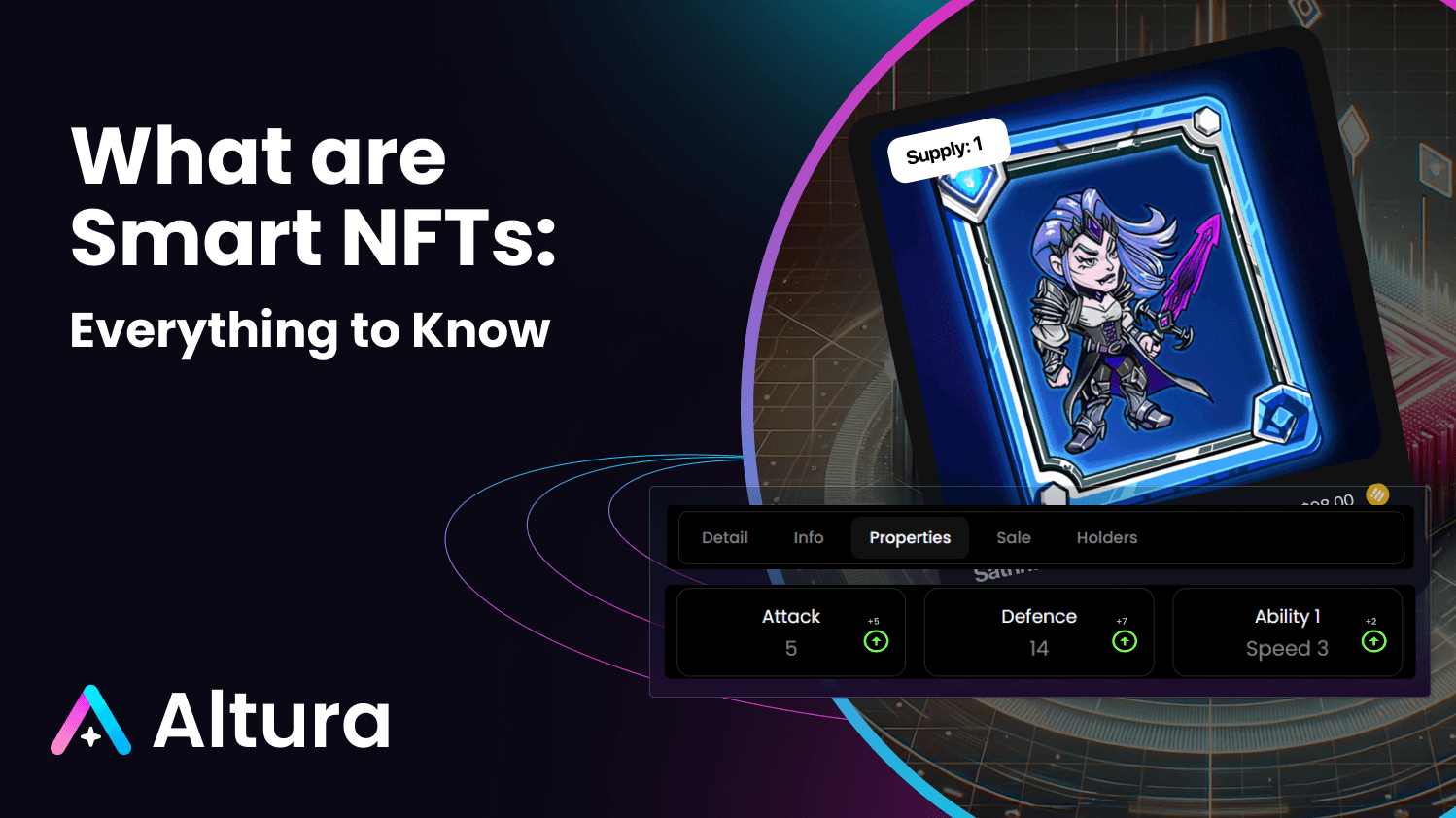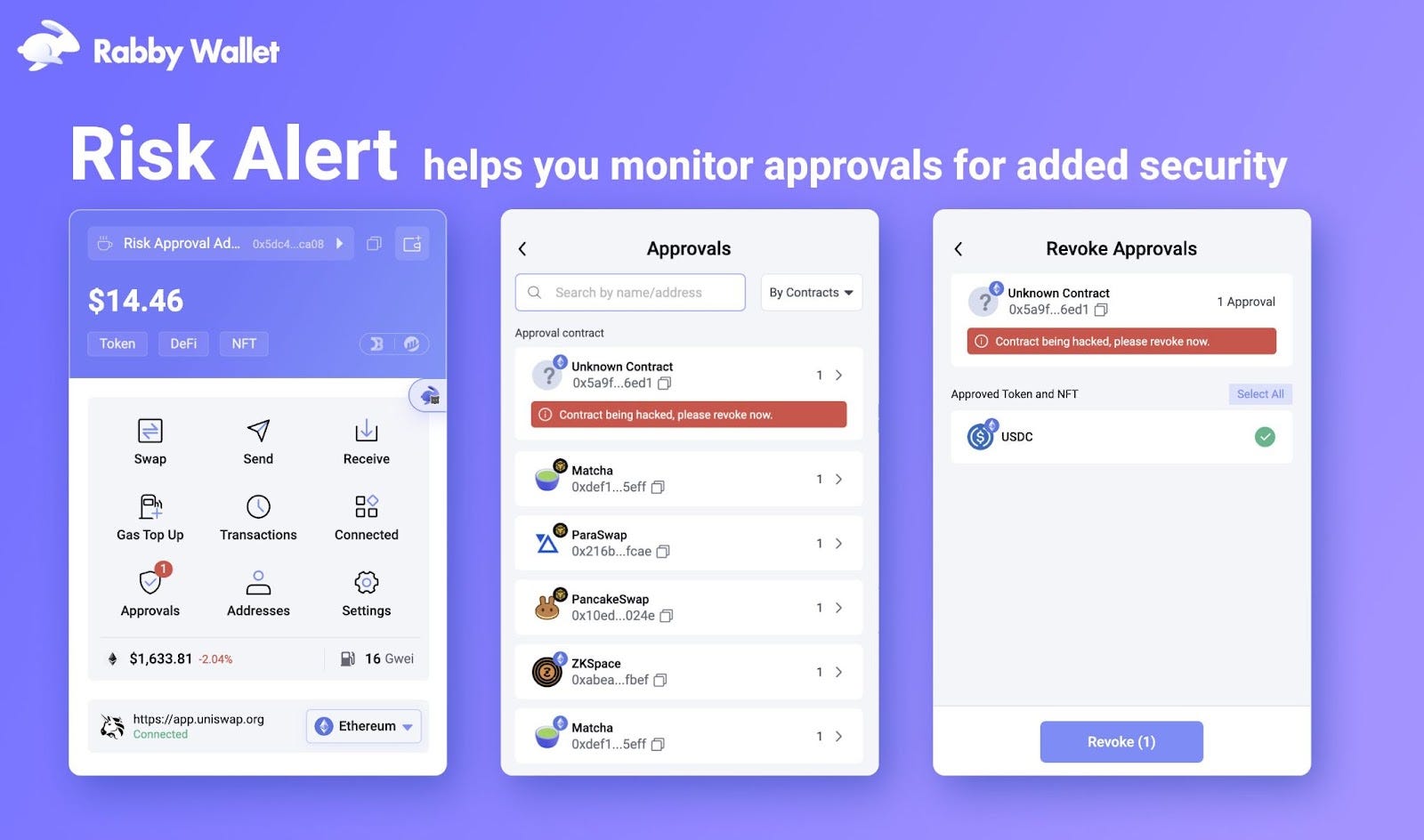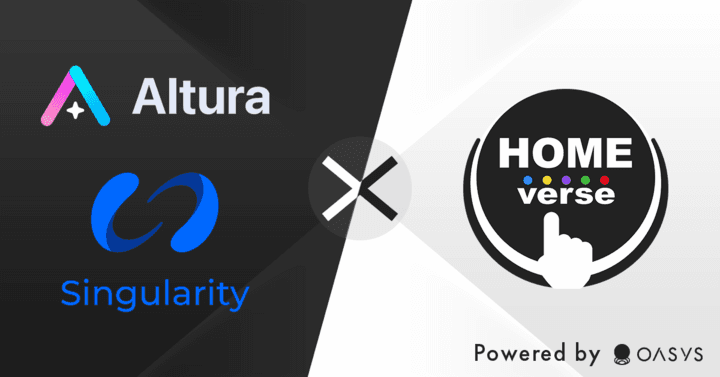Feb 23, 2024
What are Smart NFTs: Everything to Know

What Exactly is an NFT in Simple Terms?
In the simplest terms, an NFT stands for non-fungible token. It is a digital asset that represents ownership or proof of authenticity for a specific item or piece of content, usually using blockchain technology. An NFT is equivalent to a digital certificate of ownership for something unique, such as digital art, music, videos, or other digital files. NFTs have gained popularity for their ability to provide a verifiable and secure way to buy, sell, and trade digital creations.
What are NFTs Being Used For?
NFTs represent ownership and uniqueness in the digital realm, and are used for:
Digital Art Ownership:NFTs allow artists to sell and collectors to buy unique digital creations. Digital art that are NFTs can be images, videos, domain name extensions, and other digital multimedia assets.
Collectibles:NFTs can be collectibles such as virtual trading cards, virtual pets, or other unique digital items. Sports memorabilia has also seen blockchain technology create use cases using NFTs.
Virtual Real Estate:Virtual worlds and metaverse platforms use NFTs to represent ownership of virtual land and properties within their digital environments.
Gaming Assets:NFTs enable ownership and trading of in-game items, characters, and assets, providing players with verifiable ownership and scarcity. NFTs are changing how games are being developed and player by gamers
:NFT Games - The Good, the Bad and the Ugly Behind the Play-to-earn Hype
Music and Videos:NFTs allow musicians and content creators to sell ownership or access rights to their music, videos, or other digital content directly to fans.
Tokenization of Physical Assets:NFTs can represent ownership or provenance of physical assets, linking real-world items like luxury goods or real estate to digital tokens. NFT technology can sometimes be seen in the tokenization of Real World Asset (RWA) and the decentralized physical infrastructure (DePIN).
Digital Domain Names:NFTs represent ownership of digital domain names in decentralized web systems. Many blockchains have their own domain name service; one of the first and most popular domain name services is Ethereum Name Service, also known as ENS.
Authentication and Certificates:NFTs can be used to verify the authenticity of digital or physical goods, serving as a digital certificate of ownership or provenance. See the section above about RWAs and DePIN.
Do all NFTs Have Smart Contracts?
No, not all NFTs have smart contracts. While many NFTs are built on blockchain platforms that support smart contracts, some NFTs may be created on platforms that do not utilize smart contracts.
A smart contract is a self-executing contract with the terms of the agreement directly written into code. Smart contracts enable various functionalities for NFTs, such as defining ownership rules, royalties for creators, and programmable features.
Some NFTs may rely on simpler systems that don't involve smart contracts, especially on blockchain platforms with more limited capabilities. However, the majority of well-known NFTs often utilize smart contracts to provide additional features and functionality.
What are Smart NFTs?
A Smart NFT is a type of non-fungible token that goes beyond basic ownership and incorporates a smart contract functionality, meaning it can have programmable features and capabilities. Unlike a traditional NFT that might only represent ownership of a digital asset, a Smart NFT can execute specific actions based on conditions coded into its smart contract. While traditional NFTs can be deemed static, Smart NFTs are dynamic in their nature and can evolve or change over time.
For example, a Smart NFT might include features like royalties, interactive elements, time-based actions, unlockable content, and more. Smart NFTs in gaming provide many new exciting opportunities: dynamic in-game items, consumable game assets, and more.
Types of Smart NFTs
The types of Smart NFTs can vary based on the specific functionalities coded into their smart contracts. Some of the most common types include:
Interactive Smart NFTs:Allow for user interactions or changes in the NFT's appearance based on specific conditions or inputs.
Time-Triggered Smart NFTs:Trigger events or changes in the NFT's behavior after a certain period has passed.
Unlockable Content Smart NFTs:Provide access to additional digital content or features when specific conditions are met or payments are made.
Fractionalized Smart NFTs:Enable the fractional ownership of an NFT, allowing multiple users to own a share of the asset.
Dynamic Smart NFTs:Smart NFTs can change appearance or attributes based on external factors, such as real-world events or data feeds.
Utility Smart NFTs:Grant specific utility or privileges within a platform, service, or ecosystem.
Gaming Smart NFTs:Gaming Smart NFTs integrate with gaming ecosystems, allowing for programmable in-game actions, rewards, or interactions. Altura's infrastructure specializes in making Smart NFTs a seamless in-game experience for blockchain game developers and Web3 gamers.
Social Smart NFTs:These Smart NFTs include features that allow for community governance or voting on certain decisions related to the NFT or its associated project.
About Altura's Smart NFTs
Altura Smart NFTproperties allow you to store and update any information you want to retain about an item in its properties. This could include health, wear, evolution, and more. Properties are divided into two types: static and non-static.
Altura Smart NFT functionality allows you to upload multiple images for an NFT and even set one as the primary image. Whenminting an NFT, you can upload several images and order them as you see fit. The primary image can be any of the uploaded images, not just the first.
:Altura's Marketplace Transforms Gaming with Imported Smart NFTs
Are you ready to explore the evolution of Smart NFTs? Pleasewith Altura's sales team. We can't wait to hear about your specific objectives and how our expertise can help you achieve them.

